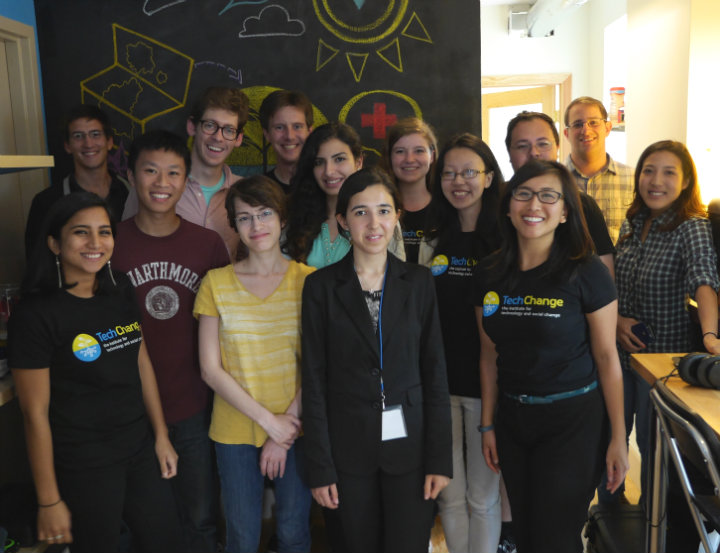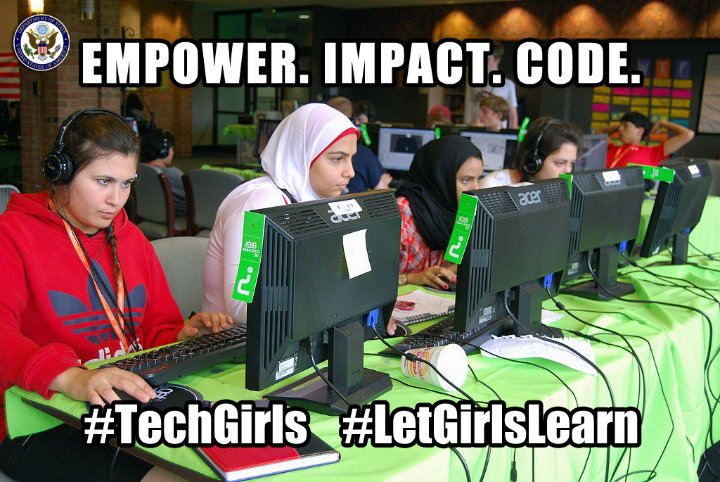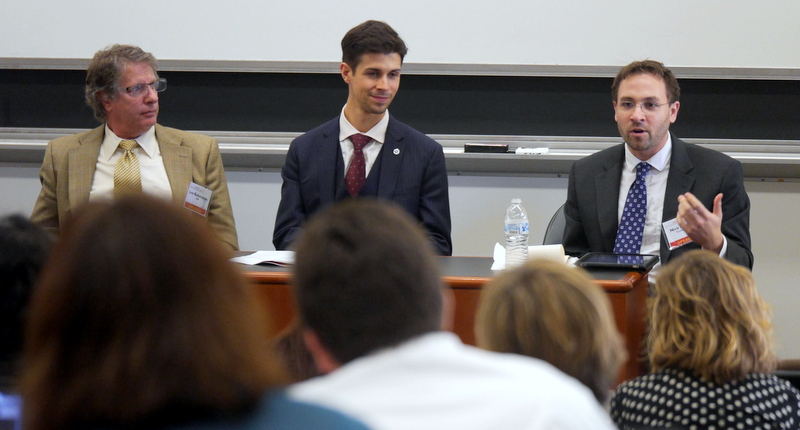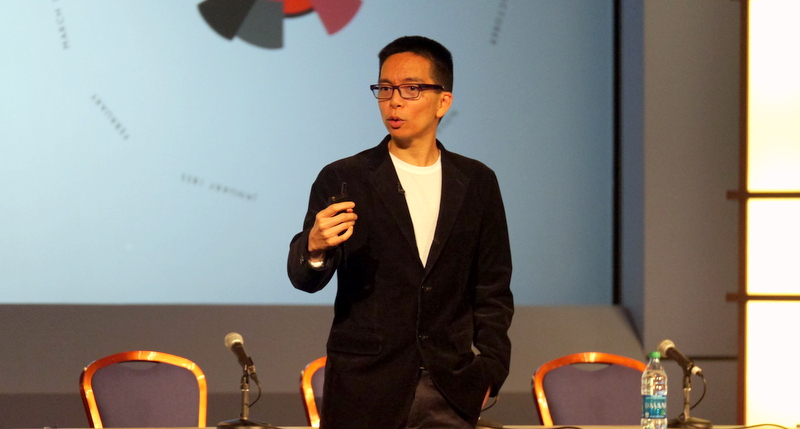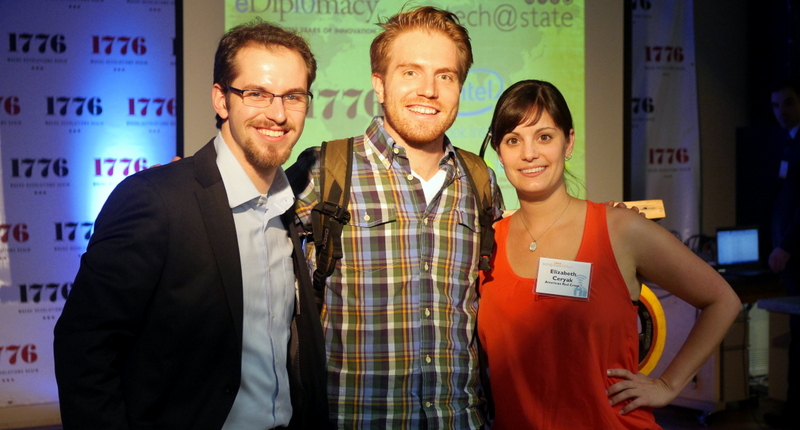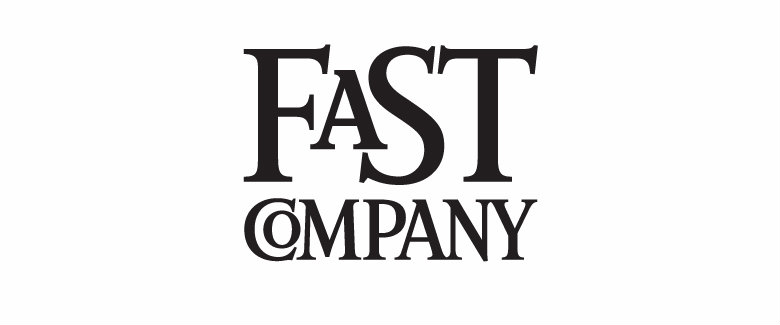TechChange Graphic Designer Rachel Roth explains to TechGirls Ghada and Nataly how to draw characters using Adobe Photoshop and Illustrator.
Yesterday, TechChange hosted a job shadow day with Nataly Ayyad and Ghada Missaoui, two incredibly talented young ladies participating in this year’s TechGirls program with the U.S. State Department. This selective exchange program encourages Middle Eastern and North African teenage girls to pursue science, technology, engineering, and math (STEM) careers. Within the next few weeks, they are travelling throughout the U.S. for their first time to visit technology companies such as Google, Facebook, Yahoo, and Instagram.
Nataly and Ghada, hailing from the Palestinian Territories and Tunisia respectively, were selected to participate in this program and spent the day at the TechChange headquarters to learn what it’s like to work at an international edtech social enterprise. Nataly hopes to go into web design and believes that technological skills can be empowering to underprivileged people, especially women. She looks forward to sharing her new skills with them. Ghada is very passionate about astronomy and one day hopes to pursue studies in astrophysics. She has built her own website called “Go Girls Engineering” using Adobe Muse to showcase engineering role models for young students.
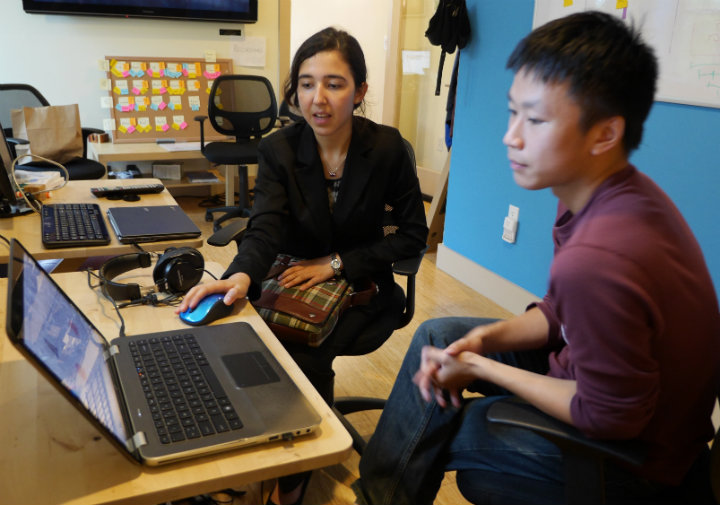 TechGirl Ghada shows Oscar Chen her website, Go Girls Engineering, she created using Adobe Muse. They discuss the pros and cons of using design tools like Muse as opposed to coding by hand with WordPress.
TechGirl Ghada shows Oscar Chen her website, Go Girls Engineering, she created using Adobe Muse. They discuss the pros and cons of using design tools like Muse as opposed to coding by hand with WordPress.
Throughout the day, Nataly and Ghada met with different members of the TechChange team to learn about digital animation, graphic design, digital photography, web design and programming, interactive infographics, data visualization, search engine optimization (SEO), customer relationship management (CRM) software such as SalesForce, instructional design for eLearning with Articulate Storyline, and more.
Upon arriving to TechChange, the TechGirls were eager to know when we would show them how we do our animation videos.
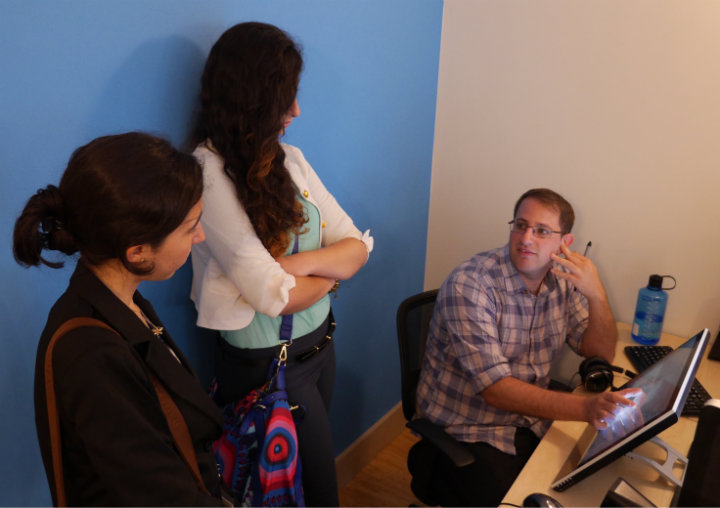 Creative Director Alon Askarov explains how he uses Adobe Edge Animate and After Effects to create TechChange animations.
Creative Director Alon Askarov explains how he uses Adobe Edge Animate and After Effects to create TechChange animations.
“My favorite part of my day at TechChange was definitely learning about the animation process!” said Nataly.
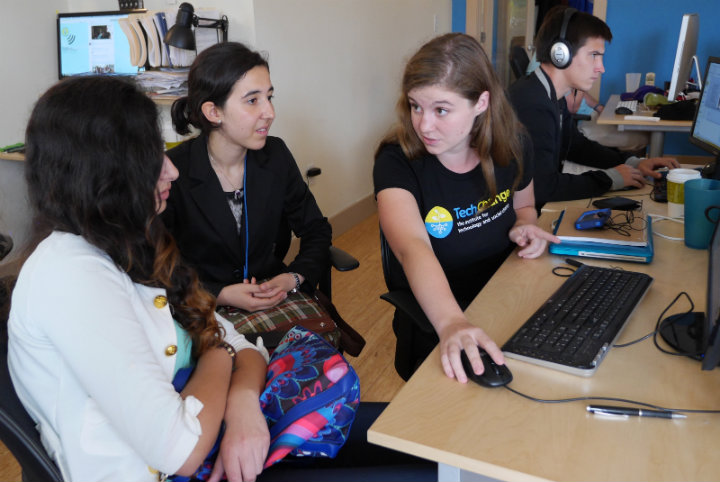 Education Technologist intern, Emily Fruchterman, shows the TechGirls the online learning courses that TechChange developed with the Asian and Pacific Islander Wellness Center to scale HIV prevention.
Education Technologist intern, Emily Fruchterman, shows the TechGirls the online learning courses that TechChange developed with the Asian and Pacific Islander Wellness Center to scale HIV prevention.
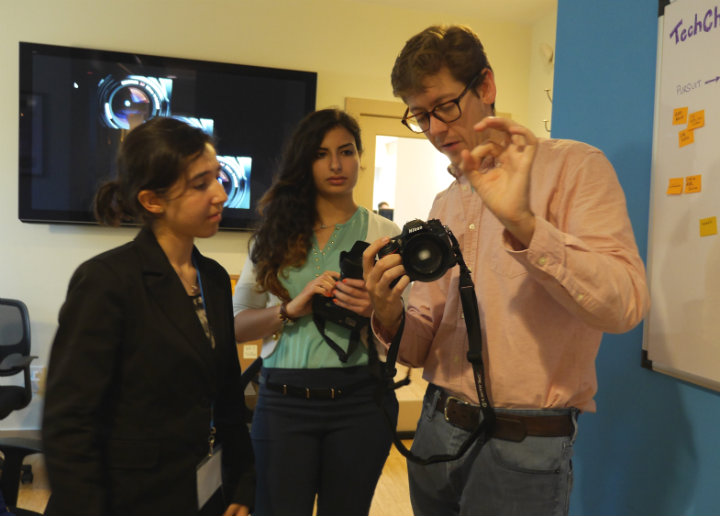 Charlie Weems demonstrates how to change aperture settings on a DSLR camera.
Charlie Weems demonstrates how to change aperture settings on a DSLR camera.
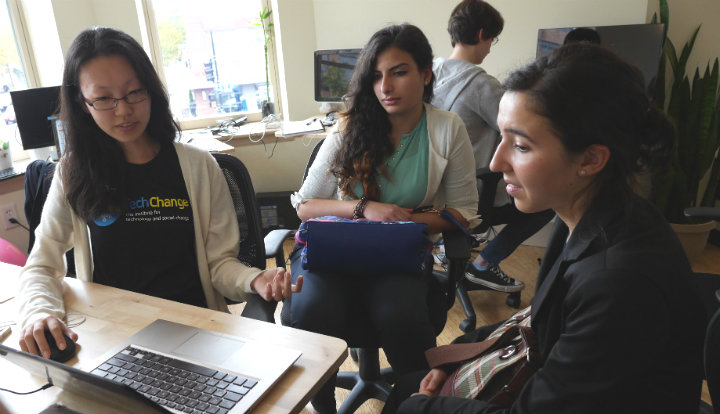 Cathie Chen shows the TechGirls how to create a hotspot on Articulate Storyline.
Cathie Chen shows the TechGirls how to create a hotspot on Articulate Storyline.
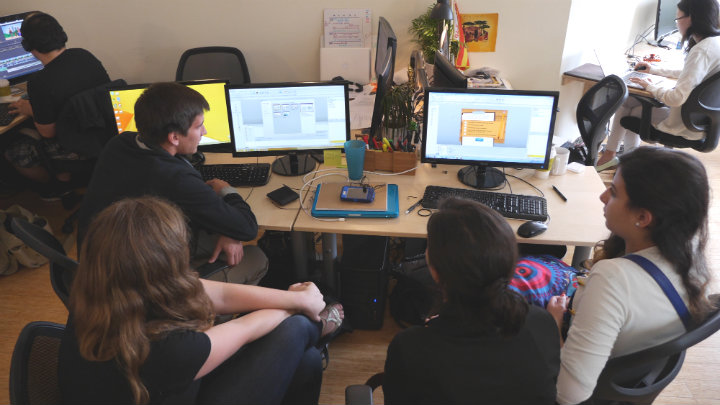 Eric Bihl and Emily Fruchterman do a hands-on session to show how to create triggers and slide layers on Articulate Storyline.
Eric Bihl and Emily Fruchterman do a hands-on session to show how to create triggers and slide layers on Articulate Storyline.
“Everything I learned at TechChange was very interesting, from learning about animations, digital photography, eLearning software, to understanding the diversity of online courses available,” commented Ghada.
Thanks for joining us, TechGirls!
See a summary of last year’s TechGirls Job Shadow day at TechChange here and click here to learn more about the TechGirls program.

